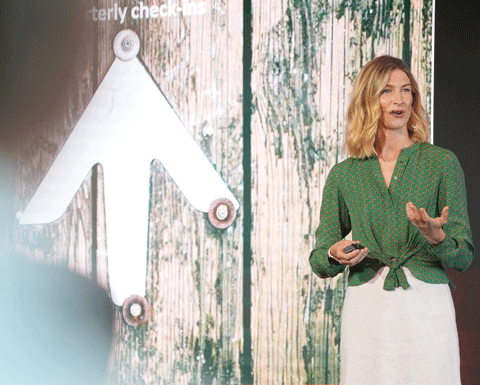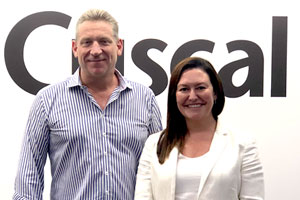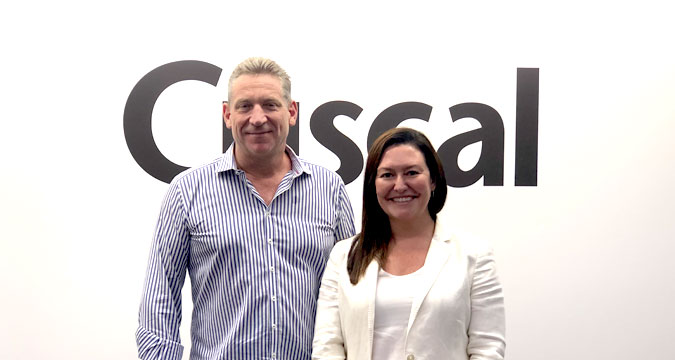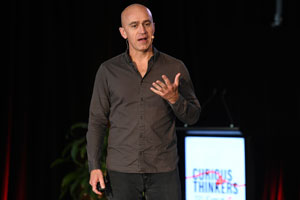
How To Build Customer Experience Excellence by Unlocking Leadership Potential
In an industry driven by precision, trust, and innovation, payments businesses often focus on the technical infrastructure that powers their operations . However, a fundamental, often overlooked element of success lies in the people who lead these businesses—your managers. As Charlotte Rush, Head of Growth at Inventium, pointed out during Cuscal’s Curious Thinkers 2024 event, leadership is not only the heart and soul of organisations but also a critical driver of customer experience and, ultimately, business performance.
The Leadership Tightrope
In today’s fast-moving business landscape, managers face unprecedented expectations. They are tasked with motivating teams, navigating technological disruption, and maintaining regulatory compliance—all while being thrust into roles with minimal preparation. As Rush aptly noted,
Management is the only job you don’t practice before you do it.
This gap in preparation often results in managers who are technically proficient but lack the people-centric skills needed to build team resilience, navigate complexity, and inspire innovation. The consequences ripple outward, affecting employee engagement and ultimately customer satisfaction.
Why Leaders Matter
Your managers don’t just oversee operations. They are custodians of culture with the power to influence how well teams adapt to change, innovate, and ultimately enable seamless customer experiences.
How Smart Companies Build Better Leaders
Organisations that excel at leadership development recognise it as a strategic investment, not a cost. Rush’s research highlighted several traits that standout companies share to prepare their managers for the challenges of tomorrow.
Here are the top strategies you can adopt:
1. Create training built for real-world challenges
Seek, a leader in talent management services uses virtual reality and in-person workshops to prepare their leaders for complex scenarios. Payments businesses can tailor similar training to simulate the environments their executives will navigate during growth phases.
2. Give leaders the support they need
Zillow, a USA-based tech real-estate business, pairs managers in mentorship programs to share ideas and problem-solve. Payments leaders could use peer networks to tackle challenges like scaling secure systems or improving customer retention.
3. Test leadership strategies before rolling them out
Deloitte’s ‘people panel’ experiments with leadership ideas on small groups before applying them broadly. Payments businesses can test compliance processes or CX innovations the same way.
4. Show that leadership is a priority
Seek’s CEO personally invites executives to their leadership program, making attendance non-negotiable. This level of executive sponsorship signals to teams that leadership development is integral to business success.
Measuring What Matters
Investing in leadership is only as effective as the metrics used to evaluate it. Rush cautioned against reliance on “vanity metrics,” such as generic engagement scores or isolated training attendance. Instead, payments organisations must tie leadership outcomes to tangible business goals:
- Customer Metrics: Track improvements in customer retention, satisfaction, and transaction speed as leadership skills evolve.
- Employee Performance: Measure team efficiency, error reduction, and adherence to regulatory standards under well-trained managers.
- Operational Outcomes: Monitor the scalability and security of payment systems as leadership initiatives take hold.
Strong Leaders Build Strong Payments Businesses
To drive meaningful change, payments organisations must move beyond technical training and invest in leadership development that fosters a customer-first mindset, builds resilient teams, and delivers measurable business outcomes. As Rush concluded, “If our leaders fail, we fail.”
Watch Back to the Future: The Workplace for 2025 and Beyond from Curious Thinkers 2024 for more actionable insights into leadership excellence and how it drives competitive advantage in the payments space.
Important Information: Information in this article is current as at 12 November 2024 and is subject to change. While such material is published with the necessary permission, Cuscal does not accept any responsibility for the accuracy or completeness of any such material. This article is provided for general information purposes only and does not have regard to the situation or needs of any reader and must not be relied upon as advice. Before acting on this information, consider its appropriateness to your business Cuscal Limited ABN 95 087 822 455.







